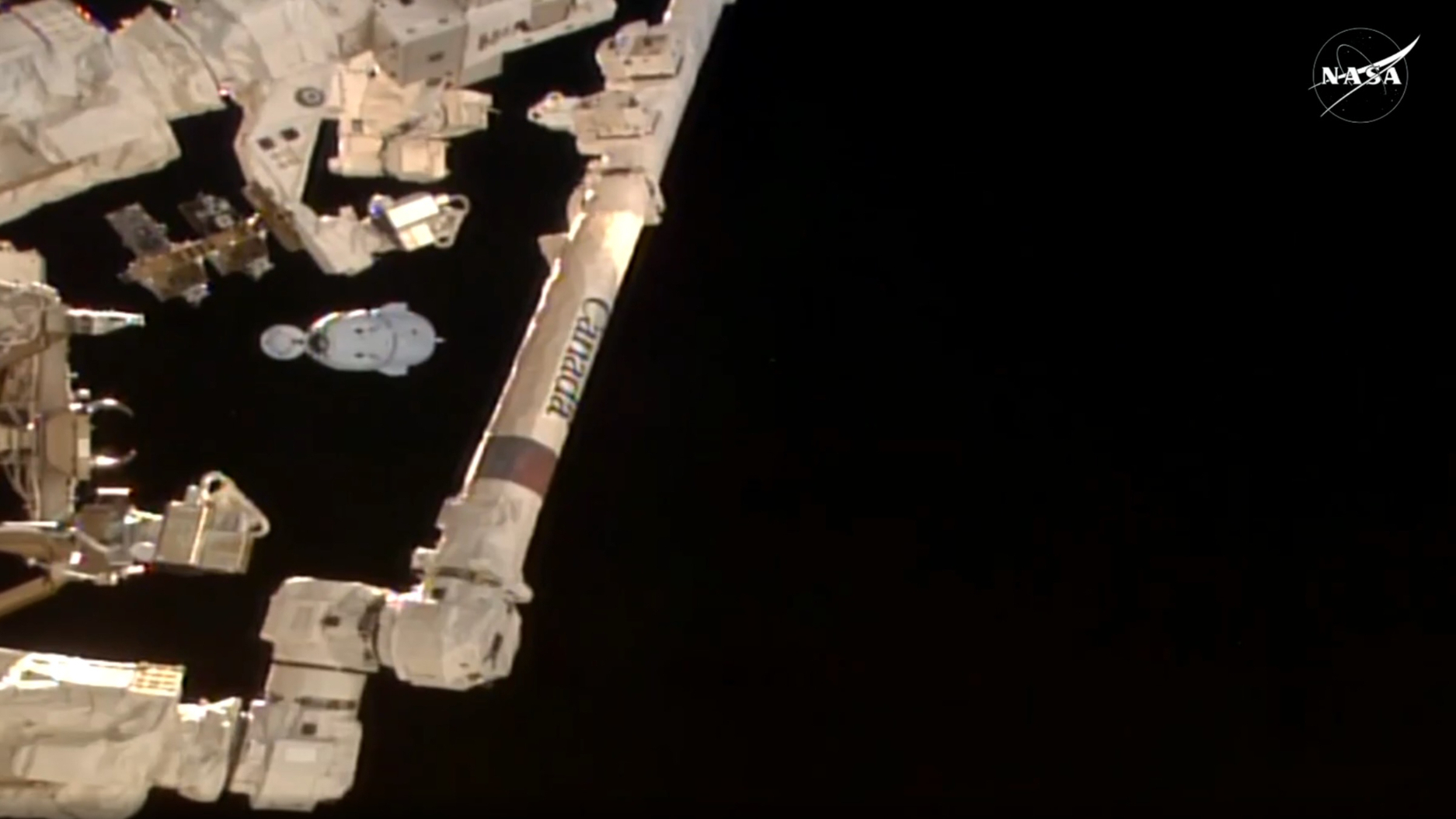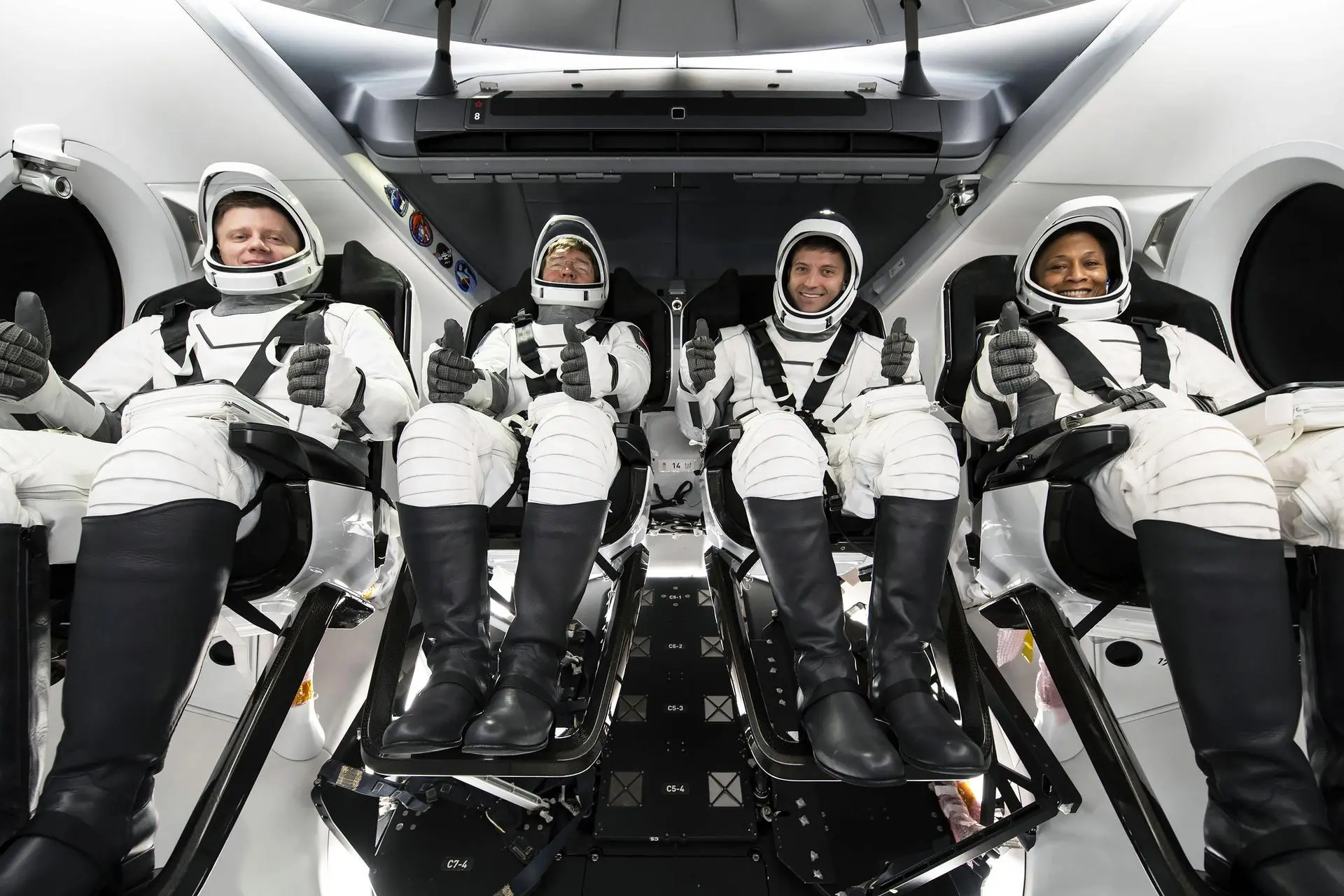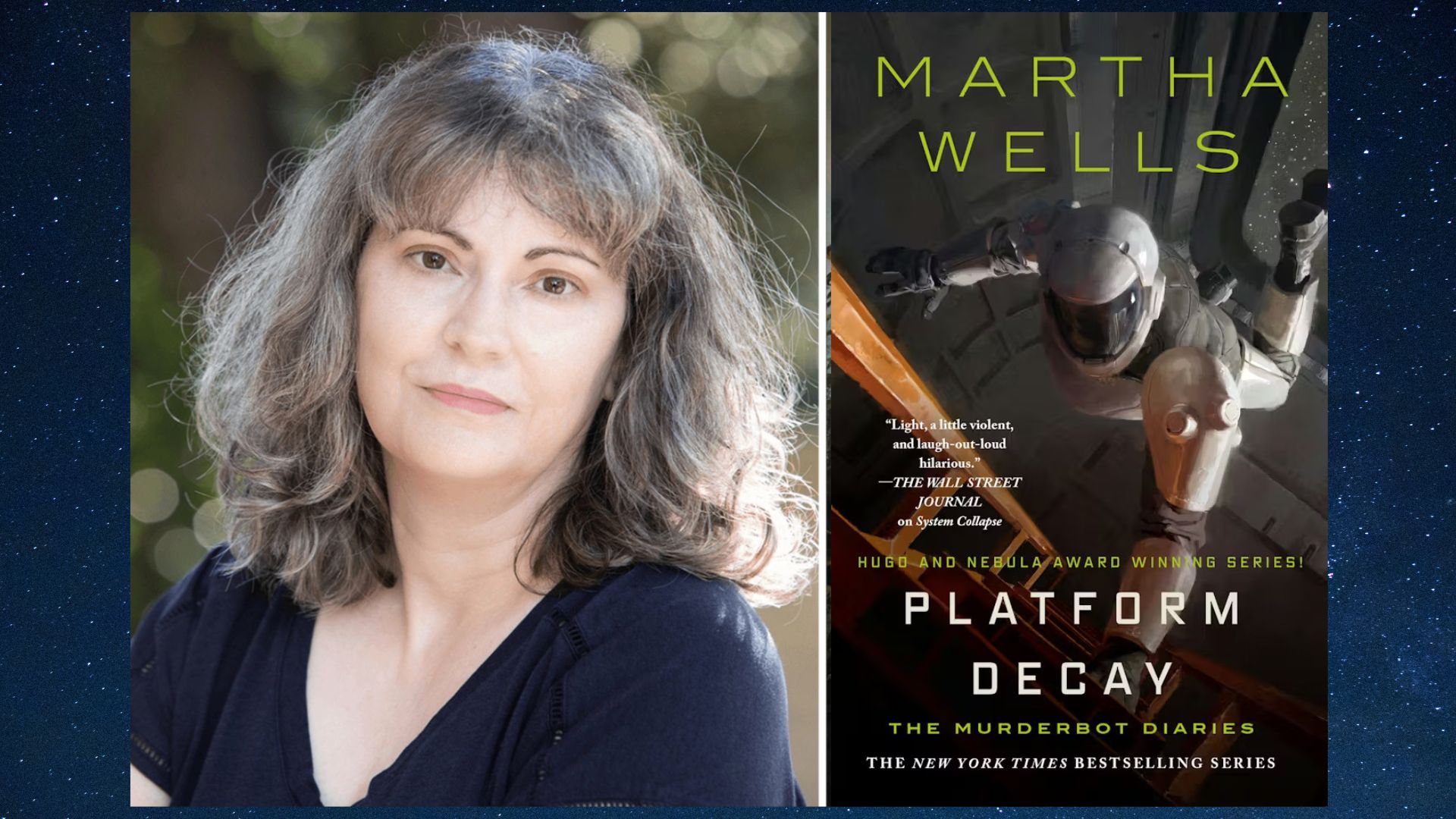SpaceX Crew-8 astronauts undock from ISS after weather delays (photo)
Crew-8's departure had been delayed for more than two weeks due to poor weather.

SpaceX's Crew-8 quartet of astronauts departed the space station at last today (Oct. 23), following more than two weeks of weather-related delays.
The Dragon spacecraft for SpaceX Crew-8, called Endeavour, undocked from the International Space Station (ISS) today at 5:05 p.m. EDT (2105 GMT), as the two spacecraft were flying 260 miles (418 kilometers) above the Pacific Ocean.
Crew-8 is expected to splash down off the coast of Florida around 3:30 a.m. EDT (0730 GMT) on Friday (Oct. 25). NASA will livestream the splashdown on NASA+. A post-splashdown news conference is planned for later that morning.
Undocking had been delayed since Oct. 7 due to poor conditions in the splashdown area during and in the wake of Hurricane Milton, which hit Florida Oct. 9 and caused a temporary closure of NASA's Kennedy Space Center to all but essential personnel.
The Crew-8 astronauts include NASA's Matthew Dominick, Michael Barratt and Jeanette Epps and Alexander Grebenkin of Russia's space agency Roscosmos. The astronauts launched atop a SpaceX Falcon 9 rocket on March 3 and docked with the ISS on March 5.
Crew-8 is the eighth long-duration NASA/Roscosmos astronaut mission SpaceX has launched to the ISS. The mission's relief crew, Crew-9, arrived at the orbiting complex on Sept. 29 with NASA's Nick Hague and Roscosmos' Aleksandr Gorbunov.
Related: Hurricane Milton bears down on Florida with Category 5 strength in new ISS footage (video)
Breaking space news, the latest updates on rocket launches, skywatching events and more!
NASA is also deep in planning for astronaut missions in 2025. SpaceX's Crew-10 mission should launch no earlier than Feb. 25, NASA officials confirmed Oct. 15. This group will consist of NASA astronauts Anne McClain (commander) and Nichole Ayers (pilot), along with mission specialists Takuya Onishi from JAXA (the Japan Aerospace Exploration Agency) and Kirill Peskov of Roscomos.
Crew-11 will be the next space station rotation, no earlier than July 2025, and NASA has not yet disclosed the crew members for that mission. The other commercial spacecraft responsible for NASA missions, Boeing's Starliner, may run a mission in 2025 pending an investigation of issues that arose during the first test astronaut mission, known as Crew Flight Test (CFT).
CFT astronauts Butch Williams and Suni Wilmore, both of NASA, remain on board the ISS after their Starliner spacecraft returned autonomously Sept. 6; the agency deemed spacecraft propulsion problems that arose after launch June 5 were too risky for the astronauts to make the ride home. The Crew-9 mission removed two NASA astronauts from the manifest to leave two empty seats for Wilmore and Williams to return to Earth in February 2025.
Editor's note: This story was updated at 5:20 p.m. EDT on Oct. 23 with news of successful undocking.

Elizabeth Howell (she/her), Ph.D., was a staff writer in the spaceflight channel between 2022 and 2024 specializing in Canadian space news. She was contributing writer for Space.com for 10 years from 2012 to 2024. Elizabeth's reporting includes multiple exclusives with the White House, leading world coverage about a lost-and-found space tomato on the International Space Station, witnessing five human spaceflight launches on two continents, flying parabolic, working inside a spacesuit, and participating in a simulated Mars mission. Her latest book, "Why Am I Taller?" (ECW Press, 2022) is co-written with astronaut Dave Williams.

